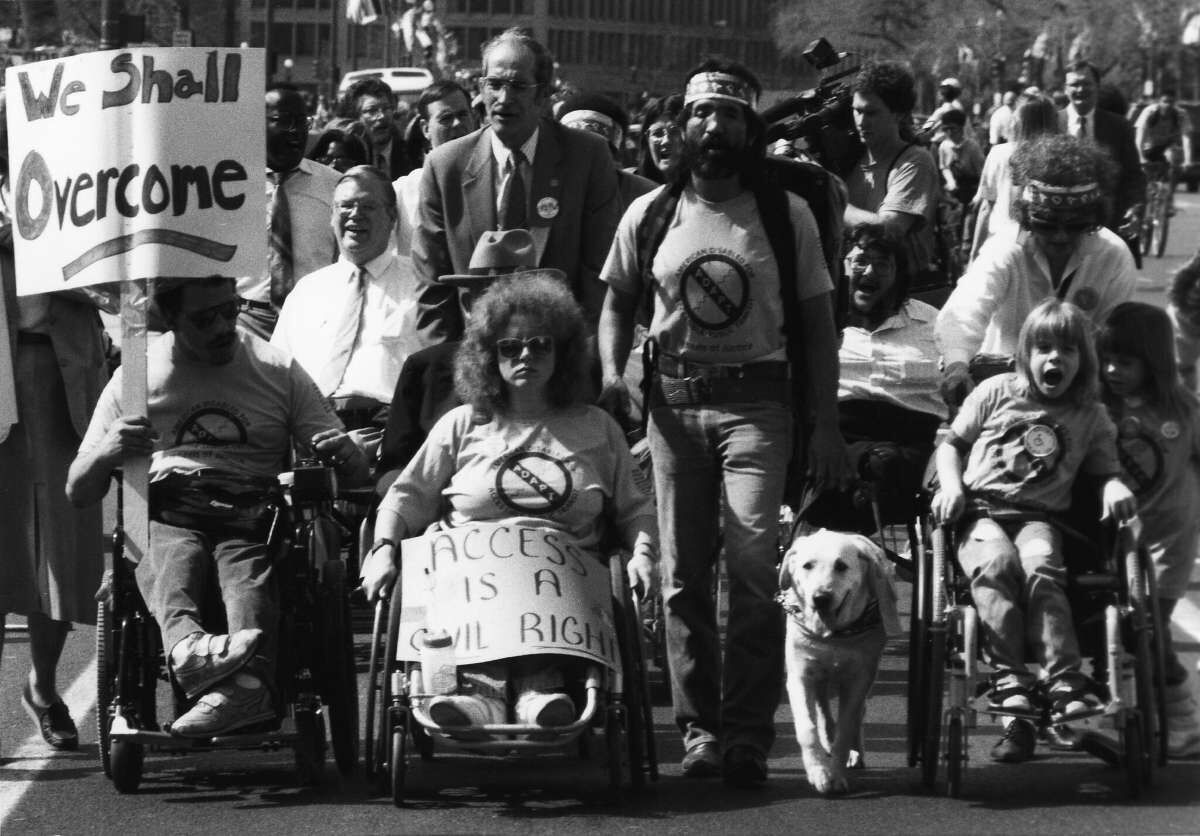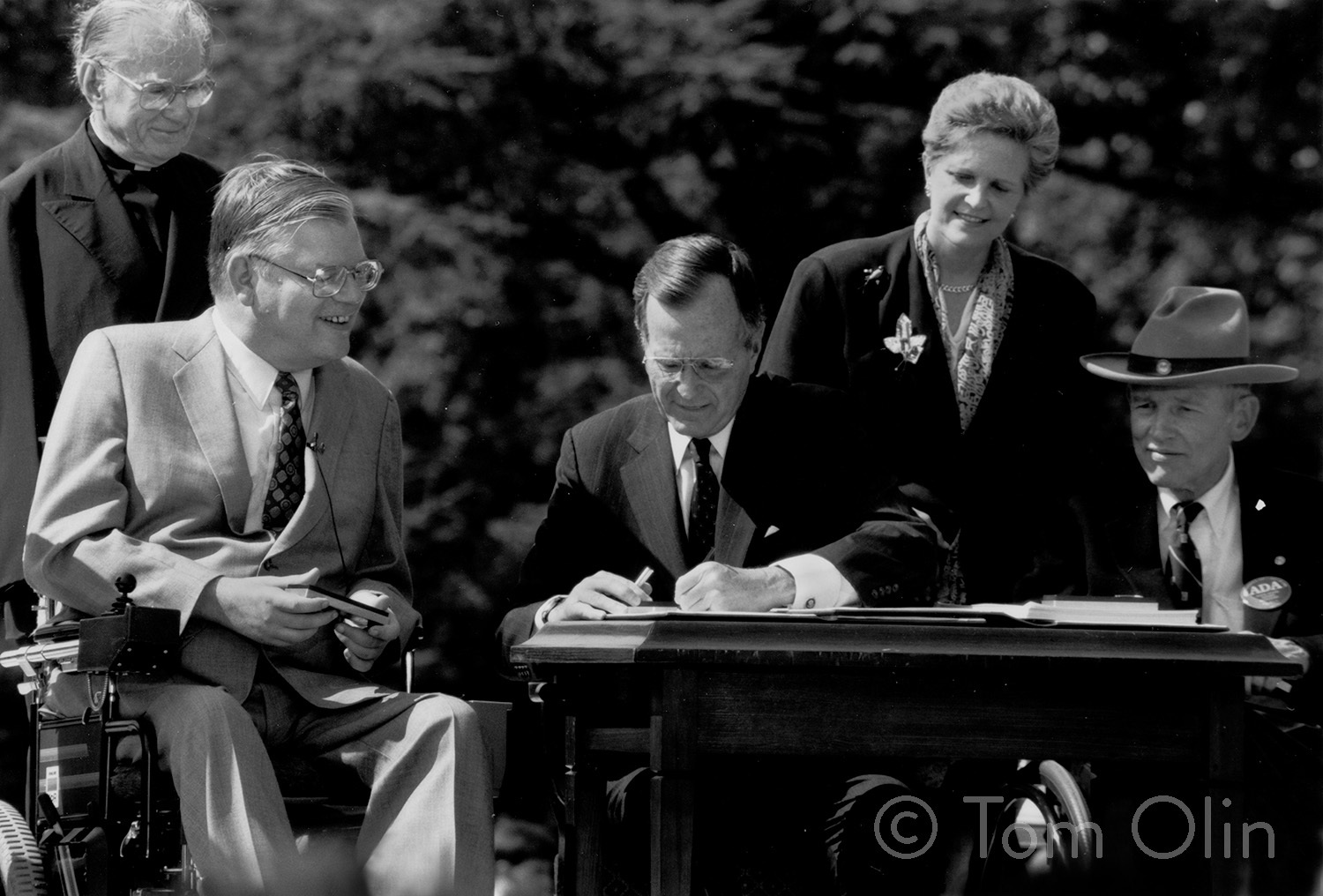Americans with Disabilities Act (ADA)
The signing of the Americans with Disabilities Act (ADA) on July 26, 1990, epitomized a watershed moment in the annals of American civil rights history. Against the backdrop of persistent challenges faced by individuals with disabilities—ranging from employment disparities to obstacles in public services, transportation, and accommodations—the ADA emerged as a legislative linchpin. President George H.W. Bush, in appending his signature, not only enacted a statute but catalyzed a paradigm shift toward a more inclusive society. The ADA, as legislative bedrock, laid down stringent prohibitions against discrimination targeting individuals with disabilities. Moreover, it introduced a mandate for reasonable accommodations, thereby charting a course toward egalitarian opportunities.This legislative edifice set novel benchmarks for accessibility in public arenas, transportation hubs, and telecommunication networks, calling for the removal of physical and communicative impediments. The legislative reverberations of the ADA extended far beyond the contours of legal statutes, infiltrating the fabric of societal consciousness. Its enactment spurred a recalibration of business practices, governmental policies, and communal infrastructures. Institutions were prompted to reassess and adapt, marking a palpable shift toward an environment that accommodated the needs of all citizens. In historical retrospect, the ADA stands not merely as a legal mandate but as a catalyst for transformative change. Its influence resonates globally, providing a template for analogous legislation worldwide. Beyond legal frameworks, the ADA has woven itself into the cultural tapestry, contributing to a pervasive ethos that esteems diversity and inclusion. The act symbolizes a collective acknowledgment that every individual, irrespective of ability, merits equitable opportunities and dignified regard.

